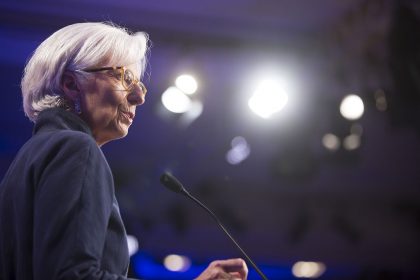IMF’s Managing Director called for central banks digital currencies, stating that they could provide financial inclusion, security, and consumer protection, which can not be offered by the private sector.
Digital currencies are on their way to mass adoption. They not only kindle interest of individuals and companies, but also occupy attention of international organizations.
Yesterday, the Singapore Fintech Festival titled “Winds of Change: The New Case for Digital Currency” took place. Among the speakers was Christine Lagarde, the Managing Director of the International Monetary Fund (IMF). In her speech, Lagarde pointed out the advantages of using cryptos and urged central banks globally to consider issuing digital currency to make transactions more secure.
.@Lagarde I believe we should consider the possibility to issue digital currency. With appropriate design, there may be a role for the state to actually supply money to the digital economy. Read her speech delivered @sgfintechfest #DigitalCurrency #CBDC https://t.co/Z6qoP09cMJ pic.twitter.com/afwQHZ6cNA
— IMF (@IMFNews) November 14, 2018
According to Lagarde, crypto payments are “immediate, safe, cheap, and potentially semi-anonymous.” She said:
“The advantage is clear. Your payment would be immediate, safe, cheap, and potentially semi-anonymous. And central banks would retain a sure footing in payments. They would offer a more level playing field for competition, and a platform for innovation. Meanwhile, your bank or fellow entrepreneurs would have ensured a friendly user experience based on the latest technologies.”
Lagarde believes that digital currencies issued by central banks can reduce the risk of global financial instability by eliminating the psychological motivation behind a bank run. She said:
“That currency could satisfy public policy goals, such as financial inclusion, and security and consumer protection; and to provide what the private sector cannot: privacy in payments.”
Further, the IMF head stated that cryptocurrencies can improve business conditions in remote locations:
“We know that banks are not exactly rushing to serve poor and rural populations.”
Two days before the festival, the IMF released a new paper on the pros and cons of central bank digital currency. According to the paper, such cryptos could satisfy public policy goals, such as financial inclusion, security, and consumer protection. Moreover, central banks digital currencies could provide privacy in payments which can not be offered by the private sector.
This is not the first time Lagarde emphasizes the advantages of cryptocurrencies and blockchain technology. In March, she called for blockchain-powered crypto regulation and said that the same blockchain technology which underpins cryptocurrencies can be used to regulate cryptocurrencies and also track whether they are being used for any illicit activities. In April, she was exploring some of the potential benefits of cryptocurrencies, stressing that “answers are already starting to take shape.”
Earlier, the IMF stood up for international cooperation on cryptocurrency regulation.
Despite having a friendly attitude to digital currencies, the IMF head is also aware of risks that blockchain involves. Lagarde pointed out that the authorities must beware of stifling innovation that benefits the public. She said:
“[Regulators] must protect consumers and investors against fraud and combat tax evasion, money laundering and the financing of terrorism. They must also protect the integrity and stability of the financial system.”
Lagarde ended on an optimistic note:
“For their part, cryptocurrencies seek to anchor trust in technology. So long as they are transparent — and if you are tech savvy — you might trust their services. Still, I am not entirely convinced.”
Of course, the case for digital currency is not universal, and to get the most out of the blockchain technology, we should investigate it further, seriously, carefully, and creatively.
next